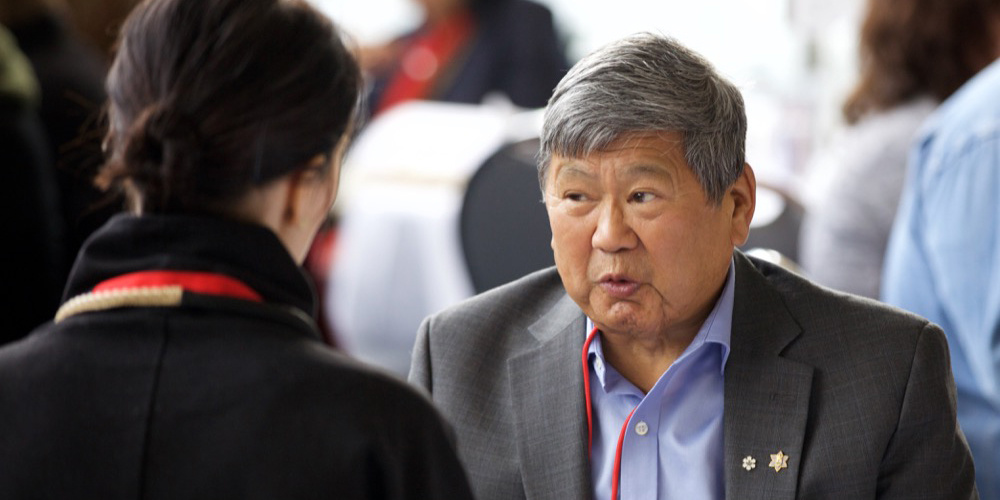Reconciliation as Part of First Nation Negotiations
Lyle Viereck recently launched a private consulting firm, Lyle Viereck Consulting Services Inc. As the former Director of Aboriginal Relations and...
3 min read
Bob Joseph May 18, 2013

The Supreme Court of Canada has ruled that individual members of an Aboriginal group can’t use blockades or other “self-help” remedies when claiming a government breached its duty to consult, and in fact doing so amounted to “an abuse of process.”
In Behn v. Moulton Contracting Ltd., the SCC dismissed an appeal from individual band members of the Fort Nelson First Nation and endorsed the position taken by two lower B.C. courts.
Among the issues addressed by the SCC was whether it amounts to an abuse of process for Aboriginal individuals — in this case, all with the last name Behn — to challenge the validity of government-issued authorizations as a defence to a legal claim when they failed to take legal action to challenge the government’s authorization.
Writing for the court, Justice Louis LeBel noted:
In my opinion, the Behns’ acts amount to an abuse of process. The Behns clearly objected to the validity of the Authorizations on the grounds that the Authorizations infringed their treaty rights and that the Crown had breached its duty to consult. On the face of the record, whereas they now claim to have standing to raise these issues, the Behns did not seek to resolve the issue of standing, nor did they contest the validity of the Authorizations by legal means when they were issued.
In the case, members of the Aboriginal community had set up a camp blockade in October 2006 to interfere with a logging operation within Treaty 8 territory. The blockade meant the logging company, Moulton Contracting, couldn’t get access to or cut the timber within the traditional territory of the Fort Nelson First Nation where the company was authorized to do so.
The Crown had granted licences to the logging company to harvest timber in two areas of the Fort Nelson territory.
The company brought a tort action against the members of the band (the Behns), who argued the licences were void because they had been issued in breach of the constitutional duty to consult and because violated their treaty rights.
For its part, the logging company filed a motion to strike those defences. The lower courts held that the individual members of the Aboriginal community did not have standing to assert collective rights in their defence — only the community could do so. The lower courts also concluded a challenge to the validity of the licences amounted to an abuse of process, as the members of the community had failed to challenge the validity of the licences when they were issued.
The abuse of process is a key factor in this case, says Thomas Isaac, who heads the national aboriginal law group at McCarthy Tétrault LLP in Vancouver.
They shouldn’t have been attacking the private third party [Moulton], says Isaac. What the court said was if they had a problem with this, they should have gone after the Crown approval, per se. That’s not a surprise but we haven’t had a court to date expressing it that way. It adds further credence to the view the law is becoming reasonably clear in this area.
Isaac says the decision is contrary to the perception that provincial governments try to convey that the law is uncertain in this area.
It is another decision in which the court has said ‘we are unwilling to point the finger at private third parties in terms of remedies.’ Unless the private third party has dirty hands in this, you see the court really being reluctant to applying remedies against private third parties, he says. If First Nations have a problem with the permits they should be attacking the permits, not the permit holder.
The decision states:
To allow the Behns to raise their defence based on treaty rights and on a breach of the duty to consult at this point would be tantamount to condoning self-help remedies and would bring the administration of justice into disrepute.
Source: Canadian Lawyer Magazine; Reposted with the kind permission of Jennifer Brown and Canadian Lawyer Magazine
Jennifer Brown is the editor of Canadian Lawyer InHouse. She has been a business magazine writer and editor for 10 years covering the IT, occupational health and safety, and security sectors for the business-to-business press prior to arriving at InHouse. She was also a newspaper reporter for five years in the Greater Toronto Area covering healthcare and education before going to work at a daily news online portal reporting on the technology sector.
Featured photo: David Stanley, Flickr.

Lyle Viereck recently launched a private consulting firm, Lyle Viereck Consulting Services Inc. As the former Director of Aboriginal Relations and...

During the 2019 federal election, the U.N. Declaration on the Rights of Indigenous Peoples (the Declaration) was included in four (absent from the...

It is essential when working with some of the hundreds of First Nations, Inuit, and Métis communities across Canada on industrial, social, and ...